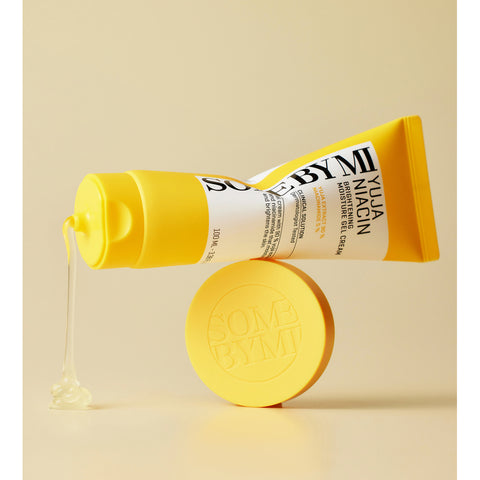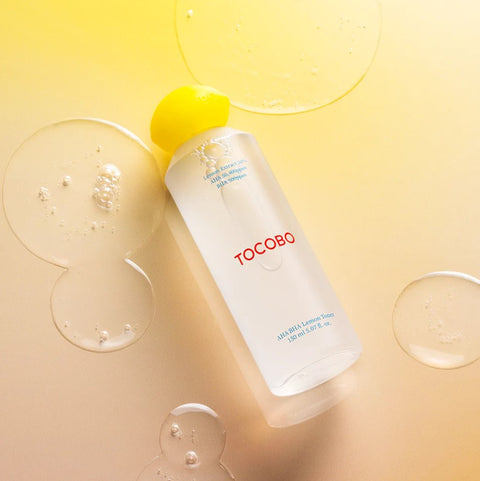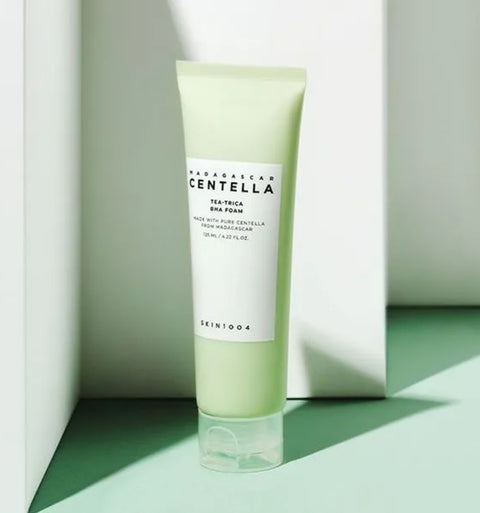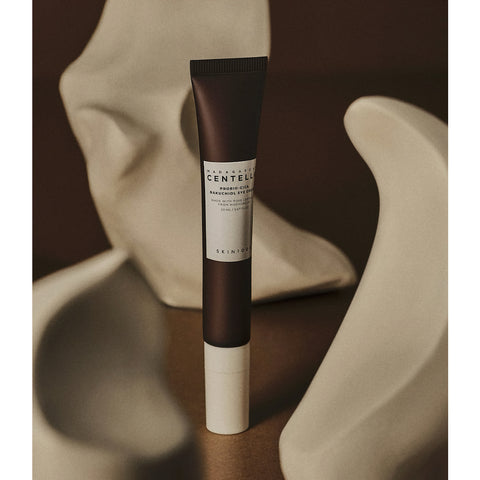Vitamin C is one of the star ingredients in skin care, and if your goal is to add just one active ingredient to your skin care routine, for example in the form of a serum, vitamin C is a strong recommendation for that. It has several benefits for the overall well-being of the skin, we present them more comprehensively in this article. Vitamin C is a well-researched ingredient and a perennial favorite of dermatologists.
The benefits of vitamin C in skin care in brief:
- Prevents the appearance of the first signs of skin aging.
- Prevents skin damage caused by the sun.
- Fades lines, dark spots, pigment changes and acne scars.
- Controls acne.
- Reduces the red marks left by pimples by improving the skin's healing process.
- Antioxidant, i.e. helps fight both external (e.g. air pollution) and internal (e.g. caused by normal processes of digestion) free radicals.
- Enhances the effect of the sunscreen's protection factor.
Check out Yeppo's vitamin C-containing products to the range of products.
Who is vitamin C suitable for?
Vitamin C is suitable for everyone as part of a skin care routine. Studies have shown that daily use of vitamin C as part of a skin care routine for at least three months reduced the appearance of fine lines and wrinkles on the face and neck, as well as improved skin texture and appearance.
The skin's youthful appearance also results from the evenness of the skin tone, for which vitamin C is a great help, as it reduces pigment changes by preventing excessive pigment production in the skin and also fades already existing pigment changes, such as liver spots and scars caused by acne. Even with acne-prone skin, vitamin C can bring relief; its anti-inflammatory properties help the skin balance sebum production.
Especially when combined with other ingredients such as ferulic acid and vitamin E, the use of vitamin C helps protect the skin from long-term damage caused by the sun's rays. Test for example Meisani Glow Drops Vitamin C Serum or Coxir Vita C Bright no serums.
If you have acne-prone skin, we recommend testing vitamin C products that also contain other ingredients that suppress excessive sebum production, such as salicylic acid. We recommend trying for example Mary&May Lemon Niacinamide Glow Wash Off Pack mask or Tocobo AHA BHA Lemon Toner.

When should vitamin C be used?
Vitamin C is suitable for use in the morning and evening, but if you want to take advantage of its antioxidant and sun protection enhancing effects, it is an excellent addition to your morning skin care routine.
Which vitamin C product should you choose as part of your skin care routine?
There are many different forms of vitamin C, and you may have heard how difficult it is to keep it stable and therefore functional in skin care products. To stabilize the substance, it is often combined with other e.g. to ingredients that improve pigment changes. Vitamin C is available in almost all skin care products, such as face creams, serums and patches. However, only serums contain active vitamin C, and their effectiveness has been studied to double the higher the vitamin content in the product (up to 20%). So if you want to harness the best benefits and properties of vitamin C, we recommend starting with a serum and supplementing your routine with other vitamin C products.
We definitely recommend to try [SKIN1004] Centella Tone Brightening Capsule Ampoule and [Cosrx] The Vitamin C 23 Serum.

Are there any side effects of using vitamin C in skin care and with which active ingredients can it be combined?
Vitamin C is a very well tolerated active ingredient in skin care. For some, it may cause a tingling or dryness sensation, but this is not harmful or an obstacle to the use of vitamin C, but can be corrected by using a moisturizer suitable for the skin type.
Most active ingredients are excellent for use with vitamin C, including retinol (contrary to common misconception).
Suitable for use with vitamin C, e.g.:
- niacinamide
- Together with niacinamide, vitamin C helps brighten skin tone effectively, as they both work in different ways to improve skin tone.
- Vitamin E
- One of the safest and most effective combinations for minimizing the effects of the sun's harmful rays is vitamin C and E together.
- hyaluronic acid
- Together they enhance each other's moisturizing effect.
- retinol
- Combining antioxidants and vitamin-rich products creates better conditions for retinol and thus prolongs the effect of retinol.
- peptides
- ferulic acid

Vitamin C formulations
If unstabilized vitamin C is in contact with sunlight, it oxidizes and turns into yellow dehydroascorbic acid (Dehydro Ascorbic Acid). Vitamin C remains stable when its pH is 3.5 or below.
Ascorbic acid (or L-ascorbic acid) is the most researched form of vitamin C, which is why you're very likely to come across it in the INCI, or ingredient list, of quality skin care products. Ascorbic acid is an effective aid in high concentrations (15% or more) for stubborn skin care problems. Research shows that the benefits of vitamin C can be obtained even at low concentrations; even a 0.6% concentration has antioxidant, skin repairing and smoothing and anti-aging effects on the skin.
Other effective and more stable forms of vitamin C include sodium ascorbic phosphate (sodium ascorbic phosphate), fat-soluble ascorbic palmitate, retinyl ascorbic acid, tetrahexyldecyl ascorbate and magnesium ascorbyl phosphate. These above work best when combined with other high-quality antioxidants and cell regeneration enhancing ingredients, e.g. green tea, retinol and/or niacinamide.

![[About Me] Rice Makgeolli Cleansing Foam](http://www.yeppo.fi/cdn/shop/files/about-me-rice-makgeolli-cleansing-foam-2.jpg?v=1704326845&width=480)

![[Anua] Peach 70% Niacin Serum Mask](http://www.yeppo.fi/cdn/shop/files/anua-peach-70-niacin-serum-mask-3.jpg?v=1703796396&width=480)





